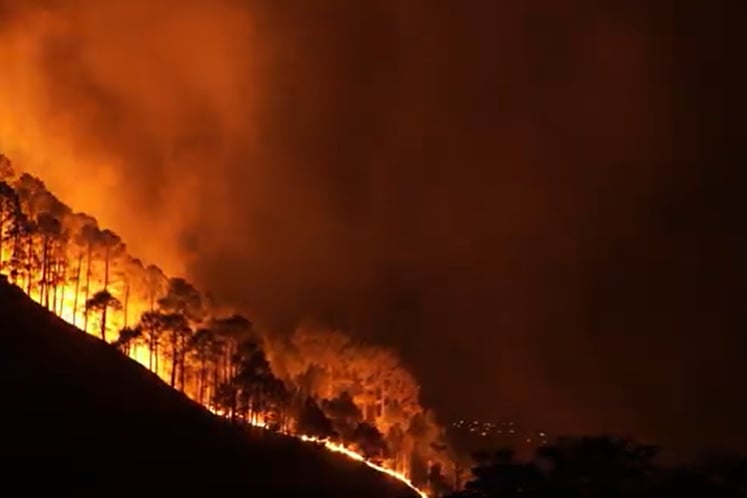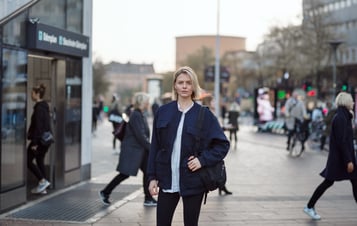Can we be balanced about climate change?
Video player requires marketing cookies.
To view this content please click here to allow marketing cookies.
Watch the recorded session here.
Various research findings confirm that how we discuss climate change matters. The words we choose in reporting the issues and in climate change policies themselves can make a significant difference. Meanwhile, navigating between neutrality and activism is becoming difficult for mainstream media. Will climate change alter the industry’s operating assumptions?
Speakers
- Ulrik Haagerup – Founder and CEO of the Constructive Institute, emphasizing solutions and constructive dialogue to rebuild trust in journalism.
- Kris De Meyer – Director of the UCL Climate Action Unit, who highlighted the psychological aspects of climate communication and the importance of fostering agency through action.
- Emilia Díaz-Struck – Executive Director of the Global Investigative Journalism Network, recognized for her work in data journalism and investigative collaborations.
- Angelika Pullen – Communications and Campaigns Director at WWF European Policy Office, advocating for ambitious climate policies through strategic communication.
- Tom Brookes – CEO of the Meliore Foundation, focused on funding effective climate communication strategies.
Video player requires marketing cookies.
To view this content please click here to allow marketing cookies.
Summary of Session 1: Can we be balanced about climate change?
The day began with an examination of the complexities of climate change communication, addressing the "bad news syndrome" that often deters public engagement. Speakers discussed the urgent need to balance the gravity of climate issues with messages of hope and empowerment to inspire action. The discussion highlighted that effective climate communication is not only about informing the public but also about motivating them to act in meaningful ways.
Key points
- Framing climate news: Ulrik Haagerup noted the importance of framing news to connect with audiences' concerns rather than just presenting bad news. He argued that journalism should not merely highlight problems but also actively seek out solutions, thereby fostering a narrative that can restore public trust and engagement.
- Agency and action: Kris De Meyer introduced the concept of agency in climate action, asserting that taking part in climate initiatives enhances self-efficacy and emotional engagement. He advocated for storytelling that prioritizes actionable outcomes and highlights positive examples of change, moving away from narratives of despair that can paralyze action.
- Constructive journalism: Ulrik Haagerup discussed the cultural shift needed in journalism, emphasizing the need for constructive storytelling that not only identifies problems but also highlights potential solutions. He suggested that a focus on uplifting stories could change the public’s perception of climate issues, ultimately fostering a more hopeful narrative.
- Investigative journalism's role: Emilia Díaz-Struck pointed out the essential role of investigative journalism in holding power accountable and uncovering critical issues related to climate change. She highlighted successful initiatives, such as the Panama Papers investigation, illustrating how collaborative journalism can lead to significant public revelations and subsequent policy changes.
- Effective messaging: The discussion also touched on the need for tailored messaging that resonates with different audiences, considering factors like current events and individual values. Campaigns that effectively communicated the urgency of climate action, while remaining hopeful, were presented as models for future outreach. For instance, using data and emotional storytelling can enhance the impact of climate messages.
- Audience engagement: Questions from the audience focused on the effectiveness of various communication strategies and the balance between urgency and optimism in climate narratives. Common themes included the need for actionable insights and strategies to combat prevalent misinformation. Several audience members emphasized the importance of engaging younger demographics, who often feel disconnected from climate narratives.
A recurring theme throughout the session was the necessity for innovative and constructive approaches to climate communication. The panel highlighted how this can be achieved by fostering dialogue, enhancing public engagement, and focusing on actionable solutions that empower individuals and communities to participate in climate action.
Reference materials
- Reuters Institute for the Study of Journalism – Digital News Report, 2024
- Potential Energy Coalition – Global Report “Later is too late”, 2024
- Edelman – Trust Barometer “Innovation in Peril”, 2024
- Kantar – Sustainability Sector Index, 2023
- Climate Action Against Disinformation – Climate Mis-/Disinformation Backgrounder, 2023
- EBU – News Report: Climate Journalism That Works, 2023
- Institute for Strategic Dialogue – Deny, Deceive, Delay Vol. 3: Climate Information Integrity ahead of COP28. 2023
- Reuters Institute for the Study of Journalism – How we follow Climate news, 2022
- Vattenfall/TNS Kantar – “The conversation on climate change”, 2020





